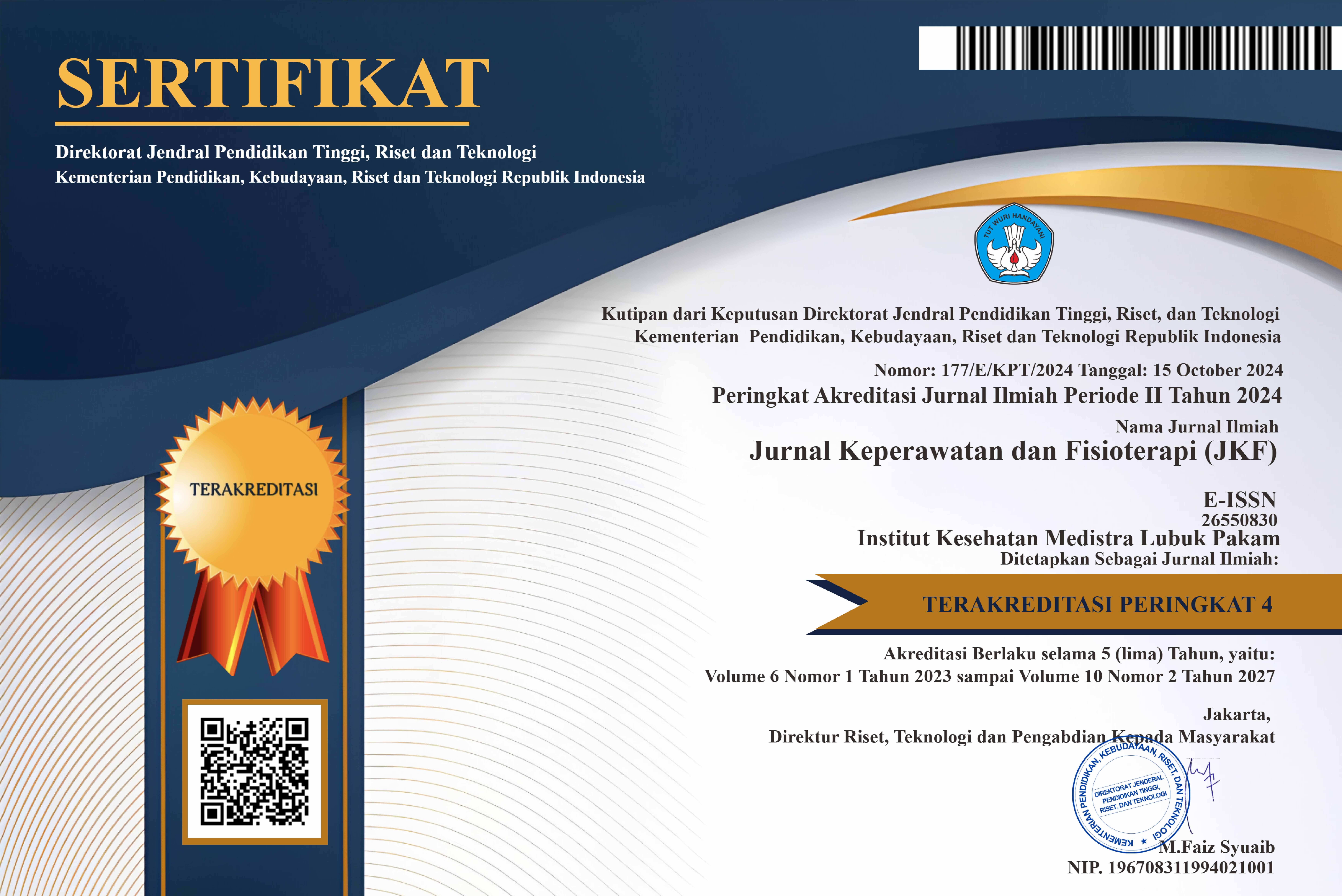A Research on TPACK Framework Construction of Teaching Models in the Education of Physical Therapy
DOI:
https://doi.org/10.35451/jkf.v6i2.2103Keywords:
TPACK Framework, Physical Therapy, integrating teaching technique, interdisciplinary collaborationAbstract
Physical therapists must have a rich understanding of medical knowledge, professional skills, and educational background to assist patients in their recovery effectively. However, the academic approach and teaching methods have always been an essential topic in the training of physical therapy professionals. The TPACK framework provides a method for integrating teaching techniques, subject knowledge, and technological applications for professional educators, which can promote more effective educational methods and improve student learning experiences. This study explores constructing and applying a teaching model based on the TPACK framework in physical therapy. By combining technological knowledge, pedagogical knowledge, and content knowledge, this study will examine the value and effectiveness of this teaching model by analyzing real cases and teachers' feedback in the context of physical therapy education. Additionally, we will consider the rapid development of educational technology and future challenges and how to address these challenges to meet the needs of physical therapy education better. Through in-depth research and discussion, this study aims to provide valuable insights and recommendations for education in physical therapy to promote the development of more effective educational models and training methods that better meet patient rehabilitation needs.
Downloads
References
Cui, Y., & Zhang, H. (2021). Educational Neuroscience Training for Teachers’ Technological Pedagogical Content Knowledge Construction. Frontiers in Psychology, 12. https://doi.org/10.3389/FPSYG.2021.792723
Elmaadaway, M. A. N., & Abouelenein, Y. A. M. (2022). In-service teachers’ TPACK development through an adaptive e-learning environment (ALE). Education and Information Technologies, 28(7), 8273–8298. https://doi.org/10.1007/S10639-022-11477-8
Gagnon, C. M., Yuen, M., & Palmer, K. (2023). An Exploration of Physical Therapy Outcomes and Psychometric Properties of the Patient-Specific Functional Scale After an Interdisciplinary Pain Management Program. The Clinical Journal of Pain, 39(12), 663–671. https://doi.org/10.1097/AJP.0000000000001159
Koh, J. H. L. (2020). Three approaches for supporting faculty technological pedagogical content knowledge (TPACK) creation through instructional consultation. British Journal of Educational Technology, 51(6), 2529–2543. https://doi.org/10.1111/BJET.12930
Li, Y., International, S., & Culture for Academic, C. (2023). An Applied Study of College English Ideological and Political Articles Reading Based on TPACK Framework. 4. https://doi.org/10.26914/c.cnkihy.2023.058358
Ma, R. (2023). Enhancing Pre-service Teachers’ Technological Pedagogical Content Knowledge Through Micro-lectures:A Case Study in a Music Pedagogy and Practice Course for Graduate Students. In Proceedings of the 3rd International Conference on Education: Current Issues and Digital Technologies (ICECIDT 2023), 4. https://doi.org/10.26914/c.cnkihy.2023.017130
Netzer, R., & Elboim-Gabyzon, M. (2023). Attitudes toward the integration of nutritional assessment and counseling in the framework of physical therapy: a cross-sectional survey. BMC Medical Education, 23(1), 1–9. https://doi.org/10.1186/S12909-023-04706-2/TABLES/6
Pitt, J., & Huebner, B. (2022). Dependence of learning outcomes in flipped and lecture classrooms on review questions: A randomized controlled trial and observational study. PloS One, 17(12). https://doi.org/10.1371/JOURNAL.PONE.0279296
Rojo, A., Castrillo Calvillo, A., López, C., Raya, R., & Moreno, J. C. (2024). Effects of a Virtual Reality Cycling Platform on Lower Limb Rehabilitation in Patients With Ataxia and Hemiparesis: Pilot Randomized Controlled Trial. JMIR Serious Games, 12(1), e39286. https://doi.org/10.2196/39286
Sterpu, I., Herling, L., Nordquist, J., Möller, A., Kopp Kallner, H., Engberg, H., & Acharya, G. (2024). The outcomes of team-based learning versus small group interactive learning in the obstetrics and gynecology course for undergraduate students. Acta Obstetricia et Gynecologica Scandinavica, 00, 1–7. https://doi.org/10.1111/AOGS.14804
Veras, M., Dyer, J.-O., & Kairy, D. (2024). Artificial Intelligence and Digital Divide in Physiotherapy Education. Cureus, 16(1). https://doi.org/10.7759/CUREUS.52617
Wang, L., Jiang, F., & Liang, Q. (2023). Exploring Pre-service EFL Teachers’ Technological Pedagogical and Content Knowledge (TPACK) in Smart Learning Environment. Frontiers in Educational Research, 6(21), 119–126. https://doi.org/10.25236/FER.2023.062120
Woodruff Jameson, A., & Willett, S. L. (2024). Successful Routine Cervical Cancer Screening Facilitated by Pelvic Floor Physical Therapy for a Woman With Developmental Disability and a History of Trauma: Case Report. Journal of Women’s & Pelvic Health Physical Therapy, 48(1), 34–39. https://doi.org/10.1097/JWH.0000000000000294
ZHANG, X., LIU, L., YOU, X., & WANG, Y. (2024). The impact of blended teaching based on learning communication on students’ academic performance and critical thinking ability. Minerva Medica. https://doi.org/10.23736/S0026-4806.23.08967-X
Zhao, T., Li, S., Zhang, X., & Center?, A. A. E. I. (2023). Current Situation of TPACK for Art Vocational Teachers: Problem Analysis and Countermeasures. 6. https://doi.org/10.26914/c.cnkihy.2023.080197
Downloads
Published
Issue
Section
License
Copyright (c) 2024 Katherine Ning Li

This work is licensed under a Creative Commons Attribution 4.0 International License.
Copyright in each article is the property of the Author.


























